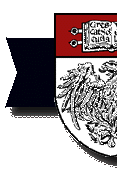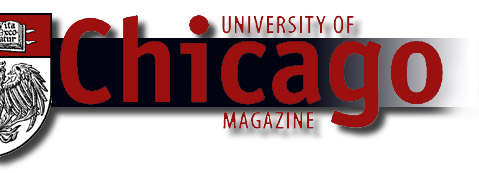 |
Daniel
Halpern, McGrath’s professor at Columbia and editor-in-chief of
Ecco Press, has described McGrath as having “an invigorating and
authentic voice that responds to the sights, scents, and sense of
this country.” He compares McGrath to Walt Whitman and Allen Ginsberg,
citing McGrath’s “long lines” and “booming voice.” McGrath further
shares with Whitman and Ginsberg an intense interest in U.S. society
and culture. Beyond describing America’s landscapes in all their
natural abundance and, sometimes, vacuity, McGrath’s mostly free-verse
work suggests what these vistas might say about the country’s people
and their values.
Now living
in Miami with Lichtenstein and their sons, Sam, 6, and Jackson,
1, McGrath has “read all the books” about Florida’s flora and fauna,
and he’s also traveled throughout the state. “I feel like it’s my
job,” he says, “to read whatever latest books are going to shed
new light on something interesting in America, but also to get in
my car and drive to Tallahassee with the kids, because the reality
of that drive is more reality than the book that explains Southern
agrarian reform or something.” McGrath says he believes the 7-Eleven
to be as appropriate a place for conducting a dialogue about Wittgenstein
as, say, a U of C classroom. “You can bring those two threads together:
our bizarre, consumerist, material culture, and intellectual thinking
about it,” he explains.
It’s with a
comedic and satiric voice that McGrath unites his pop-culture and
intellectual threads, using them to explore themes recurrent throughout
his work such as the tension created in American society by “this
utterly admirable energy and desire to do good, without a very sophisticated
actual understanding of what good might be.” Ulysses Grant, Henry
Ford, and Fred Flintstone represent that quality in some of McGrath’s
earlier books. So, in Spring Comes to Chicago, does the character
of Bob Hope.
“The Bob Hope
Poem” is the largest, most sprawling piece of Spring Comes to
Chicago. The six-part poem is framed by two much shorter sections,
“Joy” and “The Pregnancy Triptych,” comprised of one poem and three
poems, respectively. The first and final parts establish a context
within the poet-narrator’s life for the more discursive middle section.
“The more I thought about Bob Hope,” McGrath recalls, “the more
he seemed symbolic of other things—mainly, the ways in which money
functions in our society.” The comedian’s approach to life seemed
to capture the ideals of an entire generation, says McGrath—the
generation of Ronald Reagan and George Bush. “If the other guy was
doing five shows, he would do seven shows,” he explains. “He wanted
it more, and he worked harder.” Consuming 70 of the book’s 87 pages,
the central poem took McGrath seven years to complete. “‘The Bob
Hope Poem’ took over my life,” he says. “It bossed me around rather
than the opposite.”
The start of
“The Bob Hope Poem” finds the narrator flipping through People
magazine while marooned in his Chicago apartment by a whirl of falling
snow. The poem has People reporting that Hope has appeared
on a late-night TV talk show, discussing a tract of his land that’s
become hot property. Forced to choose between development and conservation,
the poem’s Hope character sees no contest. “…he wants a championship
golf course and hundreds of beautiful ranch-style homes,” writes
McGrath in his long, lyrical lines, “...so what if he’s a nonagenarian
he wants that extra twenty-five million bucks so bad he can taste
it.” Like Alice chasing her wayward cat down a rabbit hole, the
narrator embarks on a critique of this set of values that begins
as an amusing pastime but gradually gives way to a complicated wonderland
calling into question some of the culture’s most basic assumptions,
particularly those defined by the elder generation’s attitude toward
money.
Like many in
that generation, says McGrath, his poem’s Hope personage misunderstands
the value of the money he possesses. “He’s imagining some magical
good might occur to him just for holding on to his money instead
of giving it up at this point,” the poet explains.
Everyday sights
and sounds, as well as references to popular culture, place the
poem’s narrator within a recognizably Chicagoan, recognizably American
landscape, replete with Birdseye frozen vegetables, in-flight magazines,
CNN, the Discovery Channel, Montgomery Ward, and “Wal- or K- or
What-the-Hey Mart.” On the other hand, the poetic pastiche samples
snippets of pithy text from such distinguished and varied sources
as philosopher Ludwig Wittgenstein, U of C anthropologist Marshall
Sahlins, M.I.T. neuroscientist Steven Pinker, and Italian novelist
Italo Calvino. Says McGrath, “Poetry is diverse enough and variable
enough that I can get so many things that I am interested in into
it. I can get culture and data into it, but I can also get music
into the writing.”
McGrath
asks just as much of himself as a teacher. While he sees his main
job as encouraging his students in their craft, he also spends time
responding to their practical concerns. He never assumed that writing
poetry alone would earn him his living, nor does he expect his students
to rely on the craft to earn them theirs. “Some people are happy
with the notion of being an artist, and that means you’re living
in the gutter, and you have some sort of Dostoevskian lifestyle,”
he says, adding, “That was never what attracted me to art.” Even
as he pursued his creative work, McGrath was always looking for
a way to make a living. “Had there been no way,” he says, “then
it would have seemed very kooky to me to pursue it.”
One current
student, Polly A. Roberts, AB’94, recalls a time during her first
year in the College when she had McGrath, then a visiting poet,
as a teacher at the U of C. She was not enjoying school and figured
that McGrath, as an alumnus, might be able to help. “I asked Campbell
if I could talk to him, and he took me on a walk, which is his way,
and just talked to me,” she says. “He’s a very open person without
being at all sentimental.”
Several years
later, Roberts, who by then was a creative-writing graduate student
in Houston, learned that McGrath had accepted a position heading
the poetry program at FIU. She switched schools to study with McGrath
and will complete her master’s degree in spring 1999. “Campbell
is a very good poet, and he’s also a very good teacher,” says Roberts,
“and that’s a difficult combination to find.”
The teacher
remains a perpetual student, if these days only as an autodidact
in a life already “overfull with things to do.” But he admits to
“really, really wasting time” on occasion. One favorite time waster
is the CD-ROM game Civilization II. “Those strategic, highly
involved planning games always appealed to me,” he says. It’s this
penchant for strategy, perhaps, that helps him navigate his overfull
life, balancing his art and teaching, organizing the overflow of
a 70-page poem. The sturdy structures he’s crafted, both in life
and in work, support an abundance of disparate material.
|



